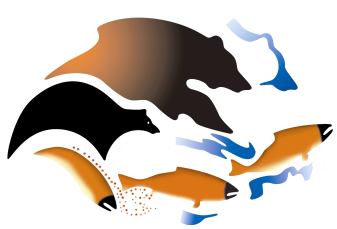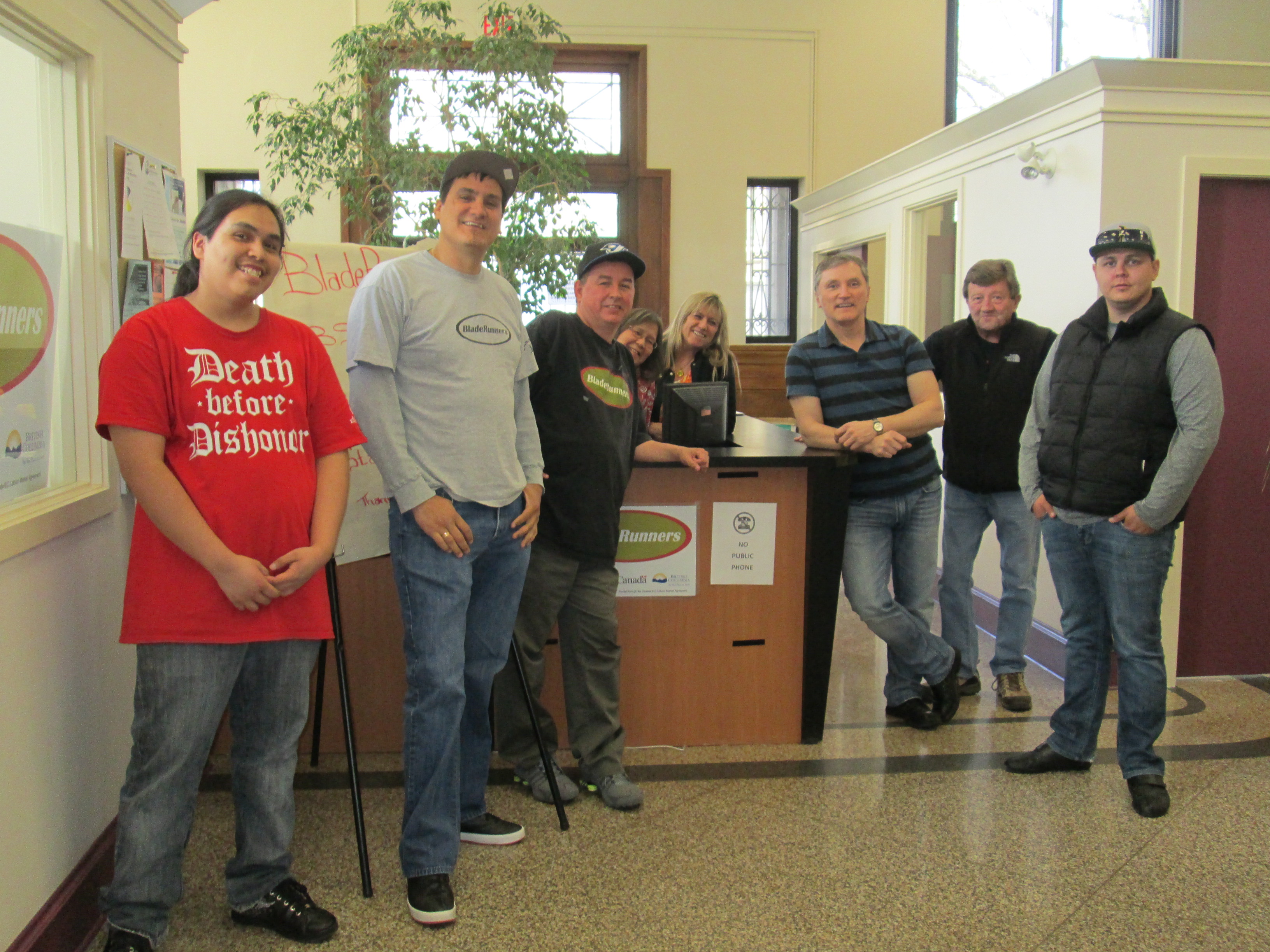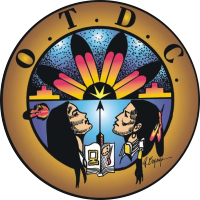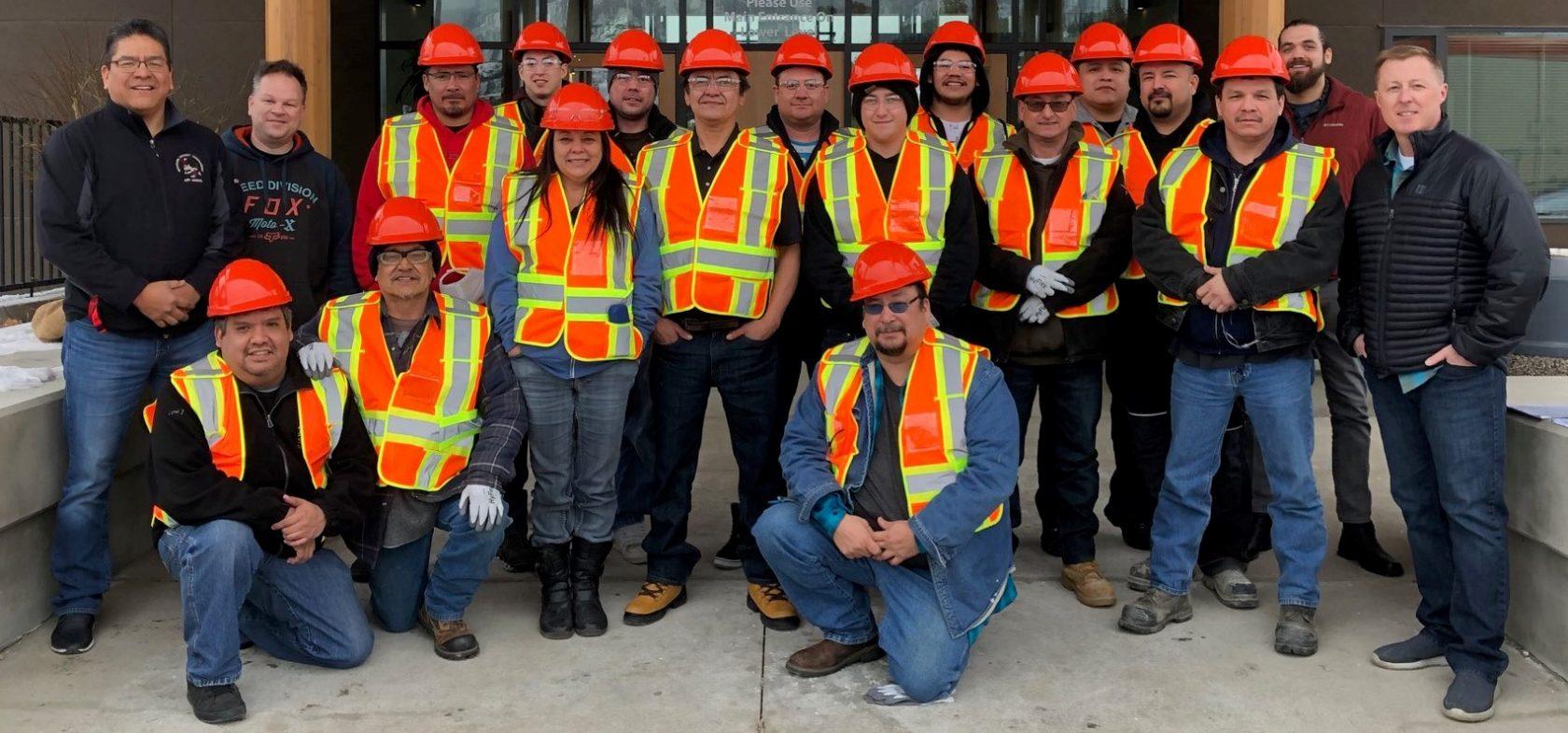Print
Thank you Karen Abramsen & Lorraine Denommee Memorial Bursary
03-21-2020
Ms. Karen Abramsen
Okanagan Training & Development Council
1-1865 Dilworth Drive, Suite 339
Kelowna, BC V1Y 9T1
Dear Ms. Karen Abramsen,
I would like to thank you for your generosity in supporting my studies at Okanagan College with the Lorraine Denommee Memorial Bursary.
Your assistance will help me to continue to pursue my educational and career goals, in the Business degree program at Okanagan College.
Attending Okanagan college, I have been taking a full course load of business classes, which I have enjoyed since last winter semester. I am so grateful for my teachers, because they do well at connecting and helping me to succeed every day. Okanagan college has also helped to make the environment very welcoming for aboriginal students. Special events that I enjoy at school include the winter festival where we get to interact with other students, do arts and win fun prizes. The welcoming back to school event is also fun, multicultural days that include experiencing new food is great! All these events help us to intermingle and get to know our peers. My special experiences include receiving external and internal awards. These awards validate and acknowledge all my hard work. Sometimes we need this reminder as students, to help continue in our studies. A reminder it is all worth the great effort and hard work. Being a single parent, living in low-income housing and going to college full time is the main reason I am in financial need. My academic achievement also shows my hard work with my overall GPA from the prior semesters. The impact of this award will help me to be financially stable while I attend school. I will not have to worry about working a part or full-time job to pay my bills. If I work, I get distracted with the job and I don’t get to be fully focused on my education, which is what I need to succeed.
Thank you so much again for your generous support of my education.
Kind regards,
Sheila (Sophie) Wilson
Print

Okanagan Nation Alliance
101 -3535 Old Okanagan Hwy, Westbank, BC V4T 3L7
Phone (250) 707-0095 Fax (250)707-0166 www.syilx.org
MENTAL HEALTH AND ADDICTIONS SPECIALIST
The Okanagan Nation Alliance (ONA) is the Tribal Council for the eight member communities of the Okanagan Nation which includes Osoyoos Indian Band, Upper Nicola Band, Upper and Lower Similkameen Indian Bands, Penticton Indian Band, Westbank First Nation, Okanagan Indian Band and the Confederated Tribes of the Colville Reservation.
The ONA is currently interested in employing a Mental Health &Addictions Specialist. The position holder will work collaboratively with community based health care providers and multidisciplinary teams and will provide direct psychosocial care, counselling and group work including system navigation, advocacy and education. The position is furthermore responsible for providing and development of services to maintain and improve the health and social well-being and the functioning of community members.
This position may be required to deliver outreach to ONA communities by providing a continuum of services such as prevention, promotion, education, assessments and care planning for individuals and families, consultation on cultural and clinical interventions including working with the ONRT (crisis response team) when communities are impacted by critical evens.
Key Duties and Responsibilities:
Key Responsibilities
Clinical Responsibilities
- Use assessment and evaluative techniques to develop and implement therapeutic treatment plans in a safe and culturally appropriate clinical setting.
- Participate in interdisciplinary treatment planning and follow up.
- Provide individual, group, and family therapy incorporating a harm reduction approach in addictions therapy.
- Develop intervention strategies in consultation with community and ONA Wellness Team.
- Observe clients to detect indications of unusual physical or mental behaviour.
- Apply a range of appropriate techniques such as relaxation exercises, peer counselling groups, and family counselling during clinical therapy sessions.
- Select and administer various tests, such as psychological test, personality inventories, and intelligence quotient tests, to identify behavioral or personality traits and intelligence levels, and record, interpret and act upon the results to evaluate client needs.
- Plan, administer and adjust therapeutic treatment, such as behaviour modification and stress management therapy.
- Discuss progress toward goals with client and revisit the treatment plan as necessary.
- Refer clients to supportive services to supplement treatment and counselling.
- Support the ONRT crisis intervention team through consultation as required.
- Liaise with Law Enforcement, RCMP, and other community based supports as required
- Provide training to community-based and ONA wellness staff.
- Participate in training programs/in-services.
- As required, develop evaluative studies of therapy and therapy outcome, using appropriate methodologies.
- Document, maintain and securely store clinical records according to requirements of regulatory agencies.
- Ensure the Wellness Quality Assurance model is implemented, including records management, and that specific program manual guidelines are implemented and reviewed regularly.
- Act as a member of Quality Management Committee.
Administrative Responsibilities
- Implement and ensure assigned budget is expensed as allocated to meet contract deliverables;
- Promote community awareness and understanding of ONA’s mental wellness mandate;
- Ensure all monthly, quarterly and annual reports are completed in a timely manner;
- Actively participate in Wellness Team meetings;
- Actively participate in assigned ONA events;
- Other duties as appropriate and required for this position.
Qualifications Knowledge, Skills and Abilities
The Mental Health & Addiction Specialist is either a Clinical Social Worker (RCSW) who is registered with and practices in accordance with the standards of professional practice and code of ethics as outlined by the BC College of Social Workers (BCCSW); or a Clinical Counsellor who is registered with and practices in accordance with the standards of professional practice and code of ethics as outlined by the BC Association of Clinical Counsellors (BCACC).
The position will require the following Qualifications Knowledge, Skills and Abilities:
Qualifications
Master’s Degree in social work, indigenous studies, community development, health or related field and minimum of 3 years work experience in a counselling or therapeutic role.
- Master’s Degree in Social Work or Clinical Counselling from an accredited university.
- A minimum of two years’ recent related Mental Health & Addictions experience in clinical areas, services, and programs, or an equivalent combination of education, training and experience.
Knowledge, Skills and Abilities
- Demonstrated experience and knowledge working with Indigenous mental health and wellness issues.
- Knowledge of theories, practices and principles relative to mental wellness, suicide prevention, and mental health emergency response, particularly relative to First Nations in BC, including the current programs and services available.
- Knowledge of, and ability to apply, an understanding of First Nations cultural principles and protocols and ability to manage conflict in a respectful and culturally relevant and safe manner.
- Assessment and Treatment: Demonstrated ability to complete initial and ongoing client assessments (clinical and diagnostic reasoning) through appropriate/prescribed technical, therapeutic, safety type interventions.
- Teaching: Ability to teach clients and others both one-on-one and in groups.
- Knowledge Integration: Integrates best practice and current research evidence to support professional practice decisions and actions.
- Communication: Demonstrated ability to communicate effectively with clients, families, the public, members of the interdisciplinary team using verbal, written and computer skills.
- Human Caring and Relationship Centered Practice: Ability to promote client-focused care that demonstrates care for and with clients and significant others, sensitivity to diverse cultures and preferences, client advocacy and social justice concerns.
- Management: Demonstrated ability to organize work, set objectives and establish priorities. Manages time and resources, implements activities to promote cooperation among the interdisciplinary team and collaborates across disciplines.
- Teamwork: Demonstrated ability to foster teamwork and a commitment to excellence in the provision of client care.
- Excellent computer (Microsoft suite) and organizational skills.
- Must have the ability to manage time and prioritize workload in order to efficiently deal with the workload expected of the position.
- Indigenous Ancestry preferred.
- A reliable vehicle and a valid BC Driver’s License and driver’s abstract required.
- Flexible work hours/willingness to work on evenings and weekends.
- Current criminal record (vulnerable sector) check with the RCMP.
Hours of work: 37.5 hours per week.
Application Procedures: Please send a current resume and covering letter to:
Human Resources
Okanagan Nation Alliance
#101 – 3535 Old Okanagan Hwy, Westbank, BC V4T 3L7
Email: This email address is being protected from spambots. You need JavaScript enabled to view it. Fax: (250) 707-0166
COMPETITION OPEN UNTIL FILLED
Thank you for your interest. No Phone Calls Please only those short-listed will be contacted.
Print

Please honor Lorraine with a donation to a scholarship fund for Aboriginal students that has been established in her name. If you wish to contribute to this fund, call 250-558-3345 or click here: The Lorraine Dénommée Memorial Bursary Okanagan College Foundation
Lorraine Denommee was a warrior with a heart. She grew up in a large Métis family in French-speaking Ottawa. where there was always an extra plate at the table for a needy friend or stranger. This was Lorraine’s guiding principle her entire life. Lorraine overcame many obstacles to attain higher education and achieve success in Human Resources in the federal government. However, when she moved to Vernon she found her true calling working one-on-one with Aboriginal youth and adults as Manager of the First Nations Employment Services.
Lorraine saw potential in every client she met and would do everything in her power to provide resources and training to meet the needs of each person, which often involved “out of the box” solutions. No matter how many times someone failed, Lorraine was always there to help them pick up the pieces and start over. She was a tireless advocate and an inspiration not only to her clients but her co-workers and colleagues at every level of community and government. This memorial to Lorraine should remind us all to see the potential in others and to go the extra mile like she would have done.
Print
BladeRunnersTM is a highly successful provincial program that has received numerous awards and distinctions of recognition since its inception 16 years ago. It is an employment training model for at-risk-youth between 18 and 30 years old who have multiple barriers to employment. Participants receive job readiness skills, on-the-job training which is sometimes subsidized, and unparalleled support from their BladeRunners Coordinator(s) and peers.
BladeRunners Model
The purpose of the BladeRunners model is to maintain overall consistency, continuity, integrity and identity through a provincially standardized service delivery model that reflects the original intent and purpose of the program. However, at the same time, regional flexibility is valued as important and allowed for. In order to maintain the overall consistency, continuity and original intent, all delivery agents also agree to follow and abide by the BladeRunners Guidelines and Framework Agreement 2004, which was developed with the purpose of the model in mind.
A crucial component of the model is the on-going support provided by the BladeRunners Co-ordinators, 24 hours a day, 7 days a week. The support includes regular on-site monitoring and involvement that helps to create stability and assurance for both participants and employers. In addition, the BladeRunners Co-ordinators provide after-hours support to the participants to help them overcome personal problems and crises so that they do not interfere with the job.
During the training, participants learn life skills and job readiness skills, which helps them to build their self-esteem and confidence. They also get certified health and safety training. Through work-place training and integrations, the participants acquire marketable skills, which enhances their long-term employment prospects. This development of long-term attachment to the work-force, is also a unique component of the BladeRunners model – it is what sets it apart from other short-term programs that are focused on short-term results and not the individuals over a long period of time.
The final key component of the BladeRunners model is the multi-sectoral partnerships that are developed between the youth, community, employers, trades unions, post-secondary institutes, and various levels of government.

BladeRunners Mandate
To provide unemployed marginalized at-risk-youth with on-going support, job readiness skills, and work-place training so that they can overcome their barriers to employment and achieve long-term attachment to the workforce.
Program Objectives
To identify and recruit candidates aged 18 - 30 who have multiple barriers to employment.
To provide participants with job readiness skills, through a structured standardized training program, which prepares them for job-placement and on-the-job training.
To provide participants with local meaningful work experience, initially through subsidized on-the-job training (some employers choose to waive the subsidy), to enhance their long-term employment prospects.
To create on-going support for participants to ensure long-term attachment to the workforce, where possible laddering individuals into apprenticeship positions in the trades.
To identify, create, maintain and strengthen partnerships with key stakeholders such as: youth, community organizations, employers, trade unions, post-secondary institutions, and various levels of government.
Chilliwack Blade Runners has continued to grow at Sto:lo under the competent hand of BladeRunners Coordinator Suzanne Catto. If you are interested in becoming a BladeRunner or employing a BladeRunner, please contact Suzanne at 604-824-2687.
Surrey Stó:Lō Aboriginal Skills and Employment Training BladeRunners Surrey has moved out of the Kla How Eya Building and is now located at 10757 - 138th Street, Surrey. To find out more information about the next intake as a participant in the BladeRunners program in Surrey call Amanda Dugas, BladeRunners Coordinator at 778-395-0385 (office).
BladeRunners is jointly funded by Ministry of Advanced Education and Labour Market Development and Service Canada.
My name is Suzanne Catto and I am the Chilliwack BladeRunners Coordinator. I have over 20 years of experience in Career Development, Employment Counseling, Life Skills and Facilitation. I received my training from a long list of post-secondary training institutes. As the Chilliwack BladeRunners Coordinator I develop and implement training programs for Aboriginal at-risk-youth between the ages of 19 & 30. I also provide long-term support, 24 hours per day seven days per week, through the necessary steps from unemployment or under-employment to a long-term and continuing attachment to the labour force. - Suzanne Catto - Chilliwack BladeRunners Coordinator
Print
 OTDC EAS Counsellors & OTDC staff with Norm Amundson, Tannis Goddard, Dr Roberta Nault & Riz Ibrahim at the BC Career development Association Mini Forum held in Kelowna in 2013.
OTDC EAS Counsellors & OTDC staff with Norm Amundson, Tannis Goddard, Dr Roberta Nault & Riz Ibrahim at the BC Career development Association Mini Forum held in Kelowna in 2013.






 OTDC EAS Counsellors & OTDC staff with Norm Amundson, Tannis Goddard, Dr Roberta Nault & Riz Ibrahim at the BC Career development Association Mini Forum held in Kelowna in 2013.
OTDC EAS Counsellors & OTDC staff with Norm Amundson, Tannis Goddard, Dr Roberta Nault & Riz Ibrahim at the BC Career development Association Mini Forum held in Kelowna in 2013.